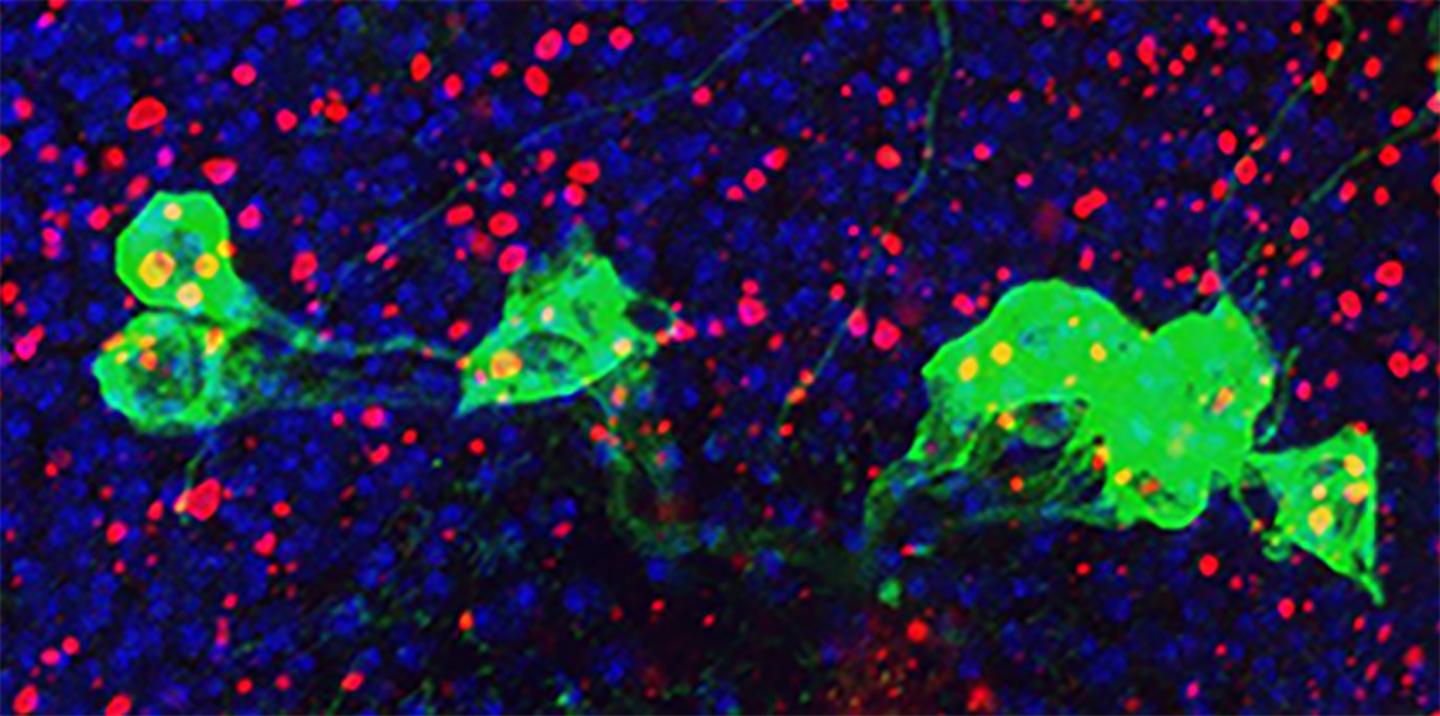Results suggest a breakdown in brain cell waste system triggers a destructive immune reaction

Credit: Giniger lab, NIH/NINDS
In a study of fruit flies, NIH scientists suggested that the body’s immune system may play a critical role in the damage caused by aging brain disorders. The results are based on experiments in which the researchers altered the activity of Cdk5, a gene that preclinical studies have suggested is important for early brain development and may be involved in neurodegenerative diseases, such as ALS, Alzheimer’s and Parkinson’s disease. Previously, they found that altering Cdk5 sped up the genetic aging process, causing the flies to die earlier than normal and have problems with walking or flying late in life and greater signs of neurodegenerative brain damage.
In this study, published in Cell Reports, they suggested that altering Cdk5 resulted in the death of dopamine releasing neurons, especially in the brains of older flies. Typically, Parkinson’s disease damages the same types of cells in humans. Further experiments in flies suggested the neuron loss happened because altering Cdk5 slowed autophagy, or a cell’s waste disposal system that rids the body of damaged cells in a contained, controlled fashion, which in turn triggered the immune system to attack the animal’s own neurons. This immune system attack is a much “messier” and more diffuse process than autophagy. Genetically restoring the waste system or blocking the immune system’s responses prevented the reduction in dopamine neurons caused by altering Cdk5. The authors concluded that this chain reaction in which a breakdown in autophagy triggers a widely destructive immune reaction may occur in human brain during several neurodegenerative disorders and that researchers may want to look to these systems for new treatment targets and strategies.
###
WHO:
Edward Giniger, Ph.D., senior scientist, NIH’s National Institute of Neurological Disorders and Stroke (NINDS)
Article:
Shukla et al. Hyperactive innate immunity causes degeneration of dopamine neurons upon altering activity of Cdk5, January 2, 2019, Cell Reports
This study was supported by the Intramural Research Program at the NINDS (NS003106).
Image caption: Understanding Aging Brain Disorders. In a study of flies, NIH scientists showed how the immune system may be a culprit in the damage caused by aging brain disorders. Courtesy of Giniger lab, NIH/NINDS.
For more information:
http://www.
neuroscience.nih.gov/ninds/
neuroscience.nih.gov
irp.nih.gov
NINDS is the nation’s leading funder of research on the brain and nervous system. The mission of NINDS is to seek fundamental knowledge about the brain and nervous system and to use that knowledge to reduce the burden of neurological disease.
About the National Institutes of Health (NIH): NIH, the nation’s medical research agency, includes 27 Institutes and Centers and is a component of the U.S. Department of Health and Human Services. NIH is the primary federal agency conducting and supporting basic, clinical, and translational medical research, and is investigating the causes, treatments, and cures for both common and rare diseases. For more information about NIH and its programs, visit http://www.
Media Contact
Christopher G. Thomas
[email protected]




